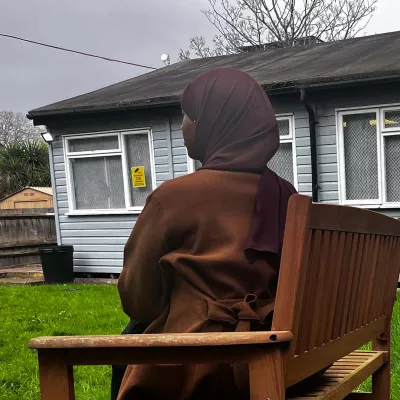The shock of the global Covid-19 pandemic is being felt across society – however, it is clear that this is not a shock which is being felt evenly. As Professor Anne Hastings at the UK Collaborative Centre for Housing illustrates, young people aged under 25 are already emerging as one of the groups hardest hit by the economic impacts of Covid-19.
The industries which have been most deeply impacted by the lockdown, such as hospitality and high-street retail, are those in which young people are more likely to work. In many of these roles, young people will not earn enough, or work enough regular hours, to qualify for statutory sick pay and other in-work benefits.
Many of those young people without access to financial support from family or friends will have to access the benefits system to get by.
However, like with minimum wage rates, people under the age of 25 are only entitled to a lower amount of money when it comes to state support, making it harder to cover essential costs, and harder to move into independent accommodation.
This might seem fair enough, for those young people who don’t have the same costs as older adults, and who can rely on family and friends for support.
However, at Centrepoint, we and our partners work with young people across the country for whom this isn’t the situation at all. With over 110,000 16- to 24-year-olds seeking support due to being homeless or at risk of homelessness from councils last year, it’s clear that there are huge numbers of young people for who this vision doesn’t fit.
These are young people who have had no choice but to grow up fast, who have had to pay rent and manage bills alongside going to college, looking for work, or looking for a stable place to call home.
And for young people in this situation, the current levels of support just aren’t enough.
Young people aren’t entitled to 15 percent off in the supermarket, or money off their energy bills, just because of their age. From struggling to afford food to not being able to use public transport, the impacts of these lower rates can damage health and wellbeing, affect development and education, and leave already isolated young people critically vulnerable to exploitation and abuse.
“It was either pay full rent or have enough food for the end of the month,” says former Centrepoint resident Jessie about her time on Universal Credit. “It’s a horrible situation to be in and young people shouldn’t be put in that situation.”
For young people in hostels and supported accommodation, this lower level of entitlement means that taking on just a few hours work can see their Universal Credit award reduce to nothing, while lower benefits across the board also make it harder to move on from homelessness. Our own research found that almost a third of private landlords cited benefits being too low as a reason why they wouldn’t want to let to younger tenants, while seven in ten housing associations surveyed saw low rates as a barrier even to accessing social housing.
The £20 a week increase to the standard Universal Credit allowance announced by the Chancellor Rishi Sunak in response to Covid-19 is a significant, and highly welcome, step in the right direction.
However, this unfairness still pervades. It’s time that young people got a fair deal, and that those facing the same costs and liabilities as anyone else – such as rent, bills, food and transport – can access the same level of support to get on their feet.
It’s not clear yet just how Covid-19 will impact on the world economy, but it is clear that the austerity measures undertaken in response to the last global recession hit young people especially hard. A decade of austerity in public spending has led to thinned-out public sector, from youth services to mental health support, while deep cuts to higher education and the welfare system have left a generation of young people in debt and out of pocket.
If the government is serious about ‘leveling up’ communities across the country, it can help those young people in the greatest need by ensuring that the benefits system is there when they need it – and that it is enough to actually live on.




 Tamsin Clements
Tamsin Clements

